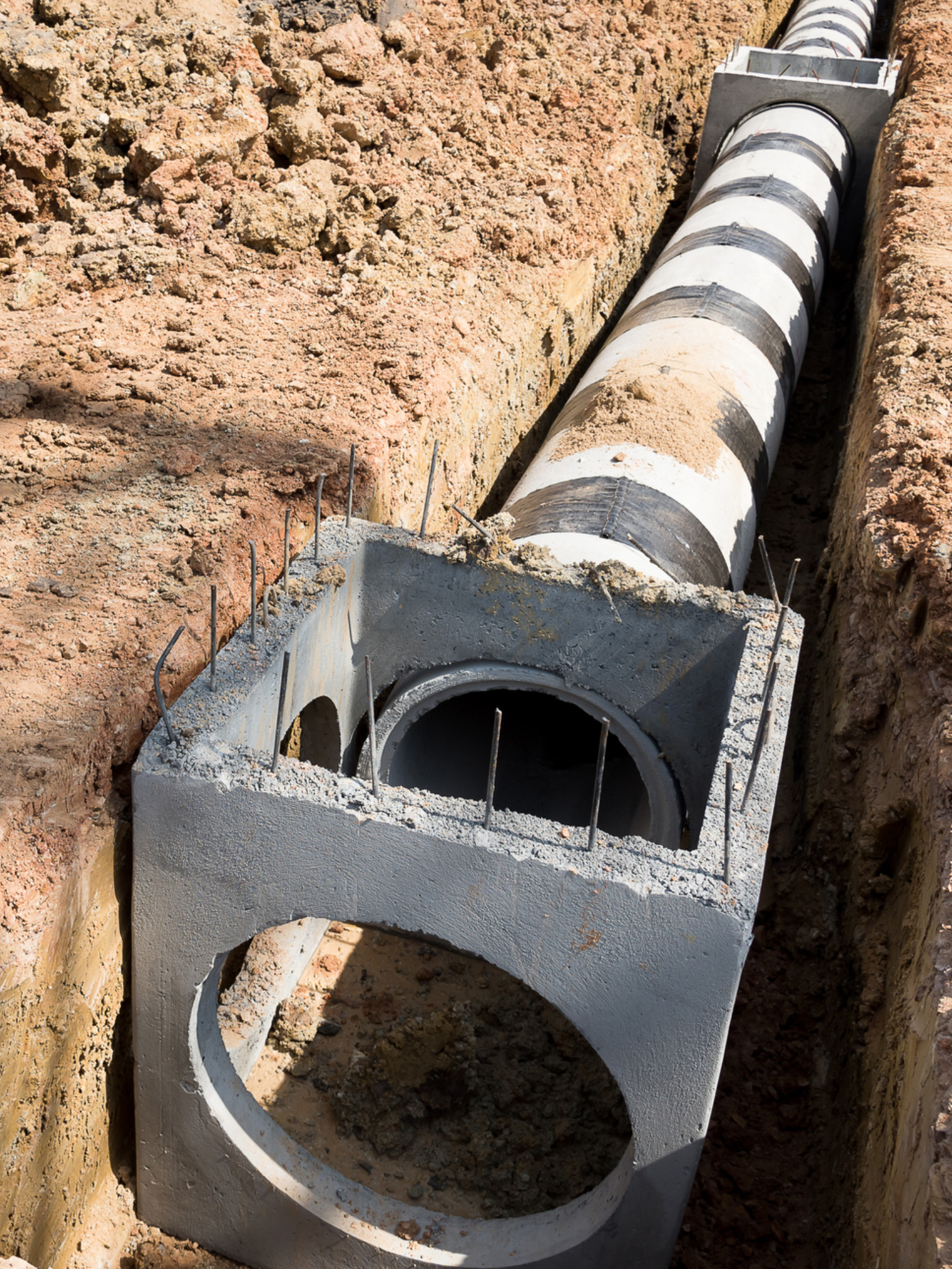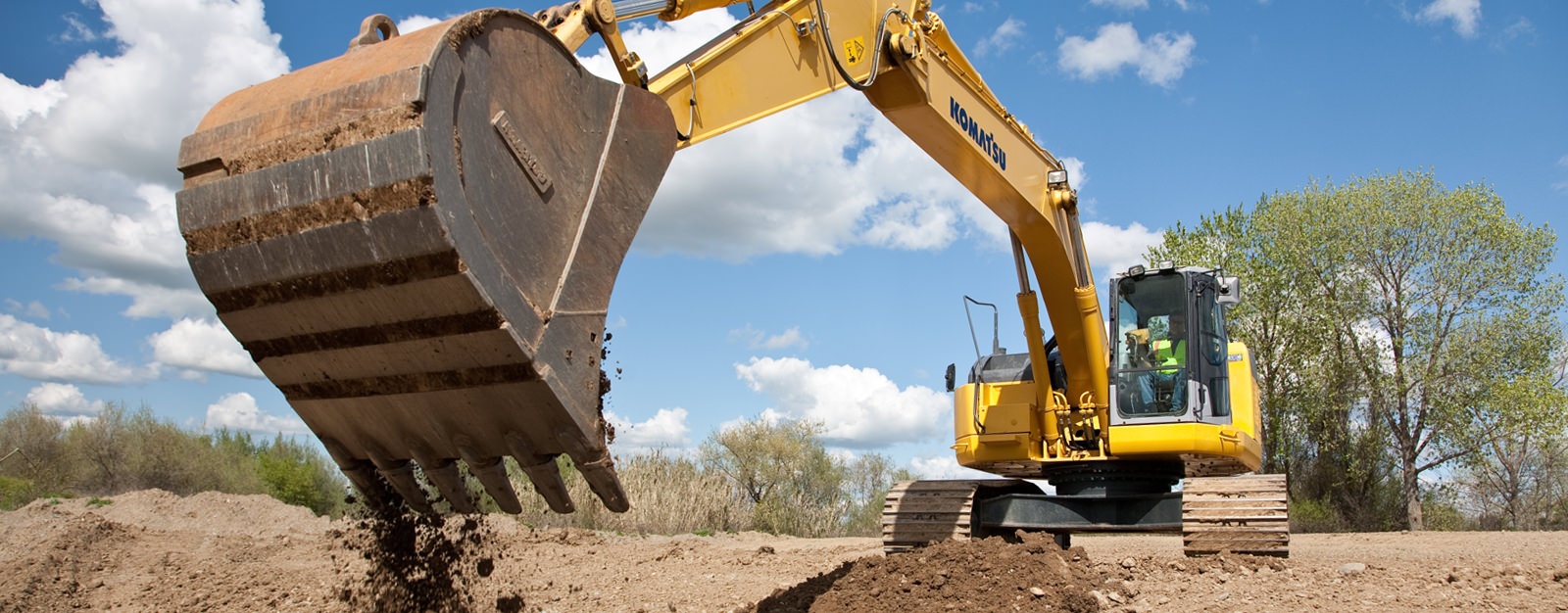Lancaster Excavation - Specialist Excavation Solutions in Lancaster, OH
Wiki Article
Comprehensive Excavation Strategies: Understanding the Fundamentals for Success
In the realm of building and civil design, the value of efficient excavation methods can not be overemphasized. The mindful planning, precise execution, and precise attention to information called for in excavation tasks demand a thorough strategy that incorporates various basic facets. From first dirt evaluation to the application of precaution and regular progress tracking, mastering these core aspects is necessary for accomplishing success in any kind of excavation venture. Nevertheless, the real mastery exists not simply in understanding these principles yet in perfectly incorporating them to browse the intricacies of excavation tasks with finesse.Comprehending Excavation Job Preparation

Effective excavation jobs are improved the foundation of complete and thorough preparation. The initial phase of any type of excavation task is the preparation stage, where crucial decisions are made that can substantially impact the outcome of the project. Throughout this phase, it is important to collect all relevant information concerning the website, consisting of topographical surveys, soil composition, and any possible dangers that may exist. Recognizing the project scope, timeline, and spending plan restraints is important for creating an extensive excavation plan that makes certain the project's success.
One key element of excavation job preparation is the growth of an in-depth timeline that lays out the sequence of due dates, tasks, and landmarks. This timeline serves as a roadmap for the task group, permitting them to track progress and make needed changes to make sure the task remains on timetable. In addition, a well-defined spending plan that represents all expenses, including tools leasing, labor prices, and materials, is vital for staying clear of cost overruns and delays. By thoroughly thinking about all these variables during the drawing board, excavation jobs can be carried out successfully and successfully, leading to effective results.
Dirt Analysis and Site Examination
Performing extensive dirt analysis and site assessment is a crucial step in the prep work phase of any kind of excavation job. Soil evaluation includes determining the structure, framework, and residential properties of the dirt at the excavation site. This info is vital for understanding the dirt's bearing ability, dampness content, and capacity for erosion, which are vital consider figuring out the excavation techniques and devices needed for the task.Website evaluation exceeds dirt evaluation and includes a broader assessment of the overall site problems. This evaluation consists of determining any type of potential threats, such as below ground energies, ecological problems, or unpredictable terrain, that can affect the excavation procedure. By completely assessing the website, project managers can establish reliable excavation approaches that prioritize safety and security, effectiveness, and ecological defense.
Making use of innovative innovations like ground-penetrating radar, soil sampling, and drone surveys can boost the precision and performance of soil evaluation and site evaluation. Investing time and resources in these preliminary actions can ultimately conserve time and stop expensive hold-ups or issues during the excavation process.
Tools Choice and Use
Reliable excavation jobs count heavily on critical devices selection and use to make sure optimum efficiency and efficiency. Selecting the best equipment for the job is important in optimizing effectiveness and minimizing downtime. Aspects such as the kind of soil, depth of excavation, and task scope play a significant function in figuring out one of the most appropriate tools for the task at hand.
Along with choosing the proper equipment, proper use is key to project success. Operators needs to be educated to take care of the equipment safely and successfully - excavating ohio. Routine upkeep checks and timely repairs help protect against failures and make certain constant performance throughout the job
Security Steps and Rules Compliance
In the world of excavation jobs, prioritizing precaution and compliance with guidelines is critical to making sure a secure and legally audio operational setting. Precaution encompass an array of methods, consisting of carrying out comprehensive website evaluations, executing correct signs and obstacles, and offering appropriate security training for all employees associated with the excavation procedure. Adherence to regulations, such as OSHA needs in the USA, makes certain that the excavation task satisfies the needed standards to safeguard employees, bystanders, and the surrounding atmosphere.
Monitoring Progress and Adjusting Approaches
Exactly how can dump truck companies in ohio predict supervisors effectively track the development of excavation tasks and adapt their techniques accordingly to maximize end results? Tracking progress is important for ensuring that excavation jobs remain on track and meet deadlines. Task managers can make use of numerous devices and strategies to track progress, such as everyday report card, normal website assessments, and advanced tracking modern technologies like drones and GPS tracking systems. By continuously checking the task's development, managers can recognize any kind of possible hold-ups or concerns early on and take proactive procedures to address them.
Verdict
To conclude, grasping the basics of detailed excavation strategies is vital for the success of any kind of job. By comprehending job preparation, evaluating dirt and website conditions, choosing suitable devices, abiding by safety and security regulations, and keeping an eye on development, job supervisors can ensure a effective and smooth excavation procedure. Executing these techniques will certainly cause effective outcomes and minimize potential threats or troubles during the excavation task.
The first stage of any excavation job is the preparation stage, where critical decisions are made that can substantially impact the end result of the task. Understanding the task spending plan, timeline, and extent restrictions is critical for developing an extensive excavation strategy that guarantees the project's success.
Just how can forecast supervisors efficiently track the innovation of excavation projects and adjust their methods accordingly to optimize outcomes? By very closely monitoring progress and being ready to adapt techniques, task supervisors can boost the general success of excavation projects.
By comprehending job preparation, assessing soil and website conditions, selecting appropriate tools, complying with safety guidelines, and checking progress, project managers can make sure a effective and smooth excavation process.
Report this wiki page